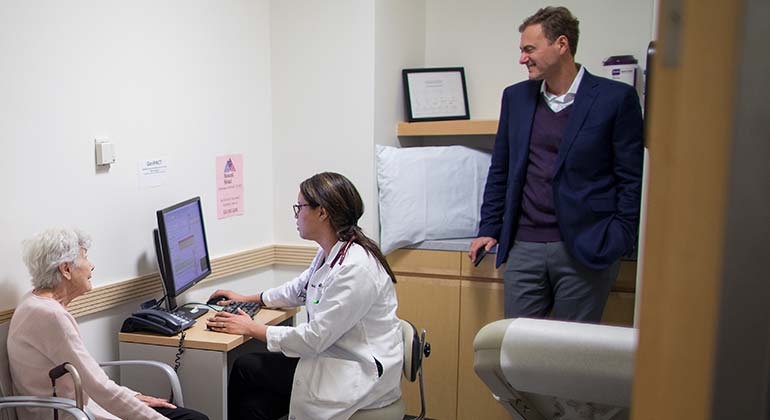What is Geriatrics?

Geriatrics is the medical specialty dedicated exclusively to providing high-quality, patient-centered care for older adults. Older adults have a unique set of issues and concerns which geriatric clinicians are trained to focus upon. Illnesses, diseases, and medications may affect older people differently than younger adults, and older patients may have overlapping health problems that require multiple medications. Geriatricians prevent and manage illnesses and develop care plans that address the special health problems of older adults.
Geriatrics FAQs
Why should I see a geriatrician?
Just as a pediatrician specializes in the care of children, a geriatrician specializes in the care of older adults. As we age, our bodies’ physiology changes. We react differently to medications, and often experience chronic illnesses or impairments that threaten our independence. A geriatrician is trained to recognize and treat conditions that are unique to older adults. Our geriatricians also provide resources and educational materials that patients can use to maintain healthy lives.
How old should I be to see a geriatrician?
There is no specific age but most patients who have a geriatrician as their primary care physician are 75 years of age or older. Often, patients who benefit the most from the services of a geriatrician have chronic illnesses, impaired physical function, impaired memory or cognitive function, depression or anxiety, weight loss, problems with balance or recurrent falls, and/or urinary incontinence.
What are the most common medical problems you see in older adults?
Dementia, delirium, falls, polypharmacy (using multiple drugs to treat a single condition or illness), coordination, confusion and agitation, and coronary heart disease.
When should you start seeing a geriatric doctor?
Patients should see a geriatrician if their medical condition causes considerable impairment and frailty; if their required list of prescription medications has grown, making it unclear which are appropriate; and/or if family members and friends feel considerable stress as caregivers.
If I see a geriatrician, can I still see my family doctor whom I have gone to for many years?
Yes. A geriatrician is a specialist and, after assessing you, will give you recommendations that you may take to your primary care physician or family doctor. The geriatrician can also become your primary care physician, if that is your choice.